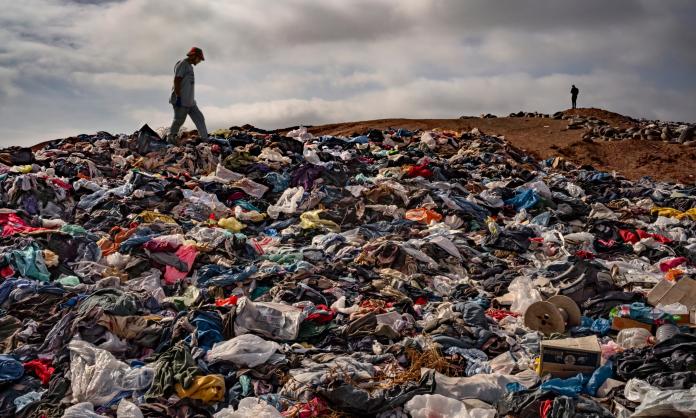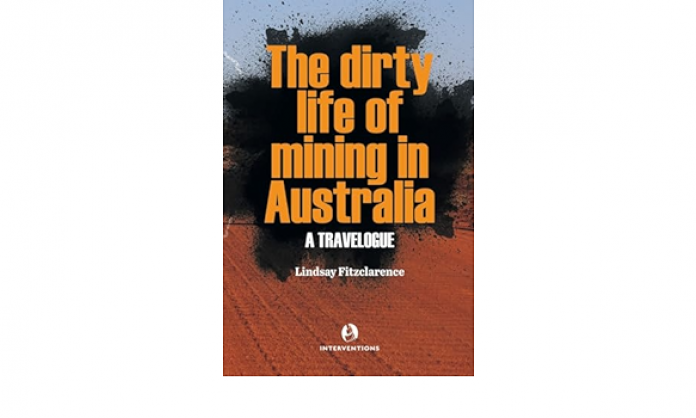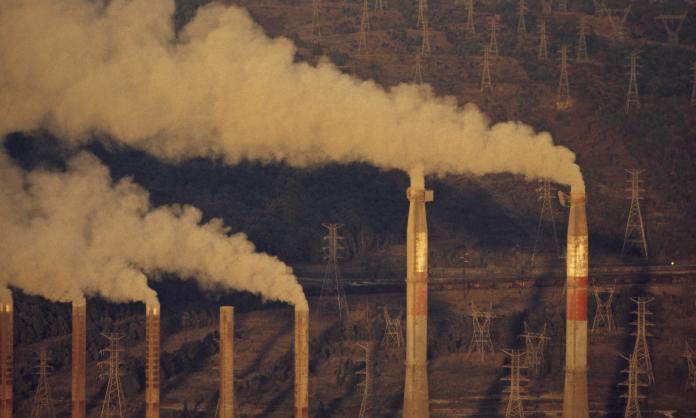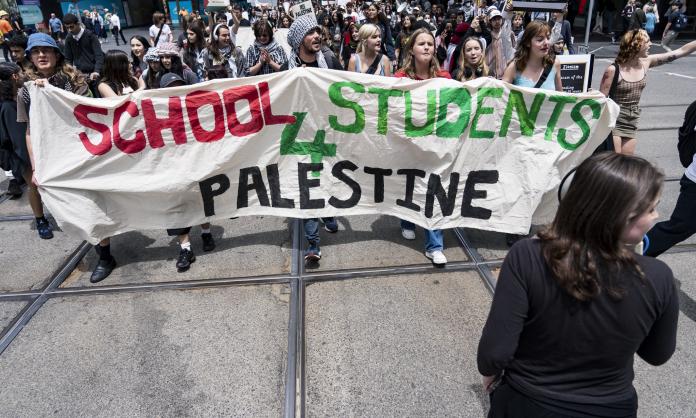If we’re going to avoid a climate catastrophe, it’s essential that organised workers take strike action: it’s simply the strongest weapon that our side has. Many union branches around the country endorsed and publicised the climate strike on 20 September, sent delegations, encouraged off-shift members to attend and, in some cases, approached employers to make it easier for workers to get leave.
In many workplaces, workers organised themselves to attend – an important step in normalising political discussion and collective activity in the workplace.
However, the delegations of organised workers were only a small component of the colossal rallies. This is partly because there was very little workplace campaigning by unions. Systematic organisation of meetings across different workplaces to maximise turnout, for instance, didn’t happen. And no union took the opportunity to publicly defy Australia’s highly restrictive industrial laws, which ban strikes in most circumstances.
Importantly, a small number of striking workers attended the rallies. Striking workers from Fenner Dunlop in Melbourne, who manufacture conveyor belts for the coal industry, spoke at the Melbourne rally – a great example of workers having the power to stop production and throw their weight behind a transition away from fossil fuel industries, even when it means their jobs likely being phased out. Maritime Union of Australia members at Hutchison Ports in Sydney stopped work for four hours as part of a long-running industrial dispute. And some teachers struck in Queensland, under a rank and file initiative in the Queensland Teachers Union.
**********
John Williams is a delegate with the United Workers Union (formerly the National Union of Workers) at Fenner Dunlop in Melbourne. He gave this speech to the Melbourne climate rally:
Hello everyone, my name’s John and I work at Fenner Dunlop in Footscray. My workmates and I are currently out on strike for better wages and conditions. And we're here today to support the climate strike.
Instead of dealing with our issues, Fenner Dunlop has gone to the Supreme Court to get an injunction against us. Taking workers like us to court is not going to stop us from standing up together.
Fenner Dunlop is a multinational company owned by the Michelin Group. At Fenner Dunlop, our work depends on the coal mining industry, as me and my workmates manufacture conveyor belts for coal mines.
Me and my workmates care about better wages and conditions. But we also care about climate change. I know the work we do has to move away from coal mining, but I’m here today because workers who work in these industries like me, must have a say in what comes next. We need to make sure good, well-paid union jobs are at the centre of future clean industry.
People who currently work in this industry don’t love coal. But we need secure jobs, fair pay and good conditions to build a decent life with our families. There’s no reason why this can’t continue with green and renewable industry.
To build the future we all want, workers must be at the heart of economic and political decision-making. Together we must put the needs of workers and people first, not the interests of big business.
The first step is recognising we’re all in this together, and we can all make these changes possible. Many people just like me are willing to change with the times and transition our industries for the future. Together we must challenge big companies like the Michelin group, who have the power to create well-paid and sustainable jobs for the future generations.
Companies like the Michelin group must put people before their profits. Let’s stand together and demand a secure and sustainable future. We demand nothing less.
**********
Tim Arnot is a teacher and union workplace representative in Queensland. He wrote this post the day before the strike:
Tomorrow will be the first time I've ever taken industrial action. It’s exciting but also bittersweet – I’m 31 and have been working for over a decade, and it’s taken this long. While I should have been out on strike to demand a decent agreement even just this year alone, it’s also a sign of the times that the first industrial action I’m part of is to demand action on climate change, along with tens of thousands of students, and hopefully as many workers, across the country.
Let’s hope that some vital lessons are drawn – that when we’re organised, we’re capable of shutting down entire cities and filling the news with our demands. For my union at least, the initiative to participate in the strike was driven primarily by inspiration from the students, and it was rank and file teachers who got official backing for teachers to strike with their students.
At the same time, the ALP here in Queensland and federally have lined up with the Morrison government to complain that workers and students should not disrupt business as usual while they back the fossil fuel industries and roll out the Adani coal mine. Time and again they demonstrate which side they’re on. It's great to see our side getting organised without waiting for the politicians to move.
I’m excited to march out of school with colleagues and students tomorrow! As has been pointed out time and again, the whole point of a strike is to be disruptive! And we’ll be sure to be loud, vibrant and determined to fight until we win!










